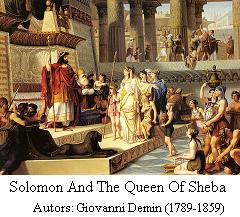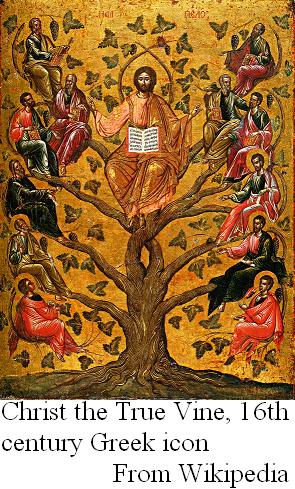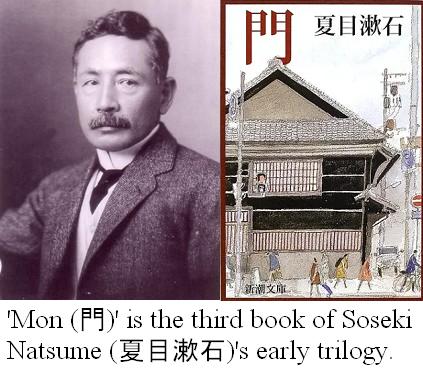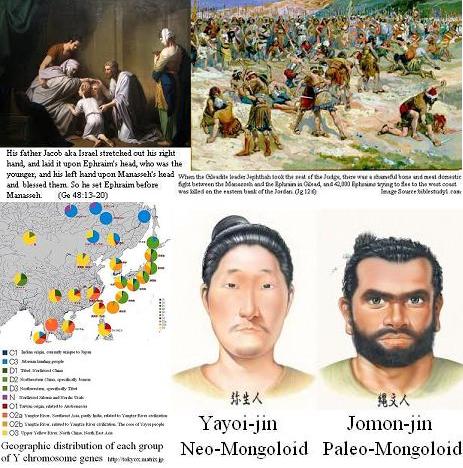Review:The baptism of the Holy Spirit (The true vine)
Jesus said, "A grapevine has been planted away from the Father. Since it is not strong, it will be pulled up by its root and will perish." (Thomas 40)
--------------
The vine is a plant familiar to the Jews. However, it was not native to Canaan, the promised land flowing with milk and honey. It seems that they were brought from Egypt by nomads who conquered the area. Since then, it has been frequently cited in the Old and New Testaments as a symbol of Israel and the Jewish people. Apparently Jesus spoke the words of the verse 40 of the《Gospel of Thomas》with the following description from Psalm 80:8-14 in mind.
You (God) transplanted a vine from Egypt; you drove out the nations and planted it. You cleared the ground for it, and it took root and filled the land. The mountains were covered with its shade, the mighty cedars with its branches. Its branches reached as far as the Sea, its shoots as far as the River. Why have you broken down its walls so that all who pass by pick its grapes? Boars from the forest ravage it, and insects from the fields feed on it. Return to us, God Almighty! Look down from heaven and see! Watch over this vine. (Ps 80:8-14)
Here too, the vine is still used as metaphor to describe both the Jews who fled Egypt under the leadership of Moses and Israel which was founded by the Jews.
Joshua's conquest of Canaan
Moses was 120 years old when he died within sight of the Promised Land. However, Moses called Hoshea the son of Nun, of the tribe of Ephraim, Joshua (Nu 13:16) and nominated Joshua as his successor before his death. (De 31:3) Joshua successfully conquered Jericho, the fortified city of Canaan, with the help of a harlot named Rahab. His soldiers killed all Jericho residents and livestock, except for the Rahab family. (Jos 2-6) He destroyed all the inhabitants of Ai, too. Both of men and women, were twelve thousand. (Jos 8:25-26) Joshua, who had ultimately suppressed all Canaan, cast lots for the twelve tribes of Israel and divided the land to them according to their divisions. (Jos 18:10) According to the genealogy of the Gospel of Matthew, the harlot Rahab married Salmon of the tribe of Judah and was the mother of Boaz, the ancestor of Joseph, the father of Jesus. (Mt 1:5)
Joshua died, being a hundred and ten years old and was buried in Timnathserah. (Jos 24:29-30) After Joshua's death, Israel formed a union of independent tribes and so called the Judges era (BC1200-BC1070) began in Israel. During this Period, when a powerful enemy appeared, the twelve tribes united and opposed under a leader called a Judge.
The birth of the kingdom
With rising the threat of Philistines, who is said to have been a maritime people, Prophet Samuel poured oil upon the head of Saul, the son of wealthy farmer of Benjamin named Kish and made him the first king of Israel. (1Sa 9:1-2 10:1) King Saul (Reign: about BC1020-1010) conquered the Ammonites, the Amalekites and others, but struggled to fight with the Philistines. King Saul also became disagreeable with Commander David, who had performed a meritorious deed at the fight with the Philistines, and Prophet Samuel. Saul lost the battle with the Philistines and committed suicide in mount Gilboa. (1Sa 31:1-5)
David (Reign: about BC997-BC966), who was appointed to the king after Saul's death and acquired a vast territory from the Euphrates River to Egypt taking advantage of Egypt and Assyria's decline, moved the capital from Hebron to Jerusalem and tried to form a religious unified state which respected the Chest of the Covenant of God (A box containing two stone plates on which the Ten Commandments were written.).
In the later years of David's reign, the battle for succession to the throne occurred one after another. The Prophet Natan consulted with David's beloved wife Bath-sheba, and persuaded old David to appoint Bath-sheba's son Solomon as the co-ruler and the successor to the throne. In this way Solomon ultimately inherited the throne in place of his elder brother Adonijah. (1Ki 1:11-53)

Prophet Ahijah tore his cloak into twelve pieces and said to Jeroboam, who had been given charge over all the labor of the house of Joseph by Solomon, "Take ten pieces for yourself, for this is what the Lord, the God of Israel, says: 'See, I am going to tear the kingdom out of Solomon's hand and give you ten tribes. But for the sake of my servant David and the city of Jerusalem, which I have chosen out of all the tribes of Israel, he will have one tribe. I will do this because they have forsaken me and worshiped Ashtoreth the goddess of the Sidonians, Chemosh the god of the Moabites, and Molek the god of the Ammonites, and have not walked in obedience to me, nor done what is right in my eyes, nor kept my decrees and laws as David, Solomon's father, did'." Solomon who knew this tried to kill Jeroboam, but Jeroboam exiled under Shishak (Sheshonk I Reign about 945-924BC or around 943-921 BC) king of Egypt until Solomon's death. (1Ki 11:28-40)
The kingdom's division and destruction
When Rehoboam, the son of Solomon, succeeded to the throne after Solomon's death, Jeroboam, who had returned from Egypt, caused a rebellion and the civil war expanded nationwide. Ten tribes of Reuben, Simeon, Dan, Naphtali, Gad, Asher, Issachar, Zebulun, Ephraim and Manasseh and some part of the Levi backed Jeroboam and founded the kingdom of Israel (Northern Kingdom of Israel) with Samaria as its capital. (1Ki 12:1-20)
On the other hand, two tribes of Judah and Benjamin and some part of the Levi backed the son of Solomon, that is, Rehoboam and founded the Kingdom of Judah (the southern Dynast) with Jerusalem as its capital. The kingdom of Israel split and its Northern and Southern Dynasties era began.
The Northern Israel Kingdom was overthrown by Assyrian invasion in 722 BC. Assyrians took 27,290 aristocratic members of the capital Samaria to its capital Nineveh as captives. The Southern Kingdom of Judah survived through the tightrope diplomacy allying with one of the two major powers of Assyria and Egypt to cope with the other's threat and tried to maintain religious centripetal force by religious reform based on Moses' fifth book "Deuteronomy" found in 621 BC.
Egyptian King Necho II (Reign 610-595BC) lost to Neo-Babylonian King Nebuchadnezzar II (Reign 605-562BC) at the Battle of Carchemish in 605 BC. As a result, Palestine and Syria were also under the control of the Neo-Babylonian Empire. King Joiakim of Judah rebelled against the Neo-Babylonian Empire in 601 BC but failed. King Joiakim was taken to Babylon with Prophet Daniel and others and died there.
After the death of King Joiakim, Jehoiachin, the son of Joiakim, acceded to the throne at the age of 18. However, Neo-Babylonian King Nebuchadnezzar II again besieged Jerusalem in 597 BC, and captured 3,023 people including King Jehoiachin and Prophet Ezekiel.
King Joiakim's younger brother, King Zedekiah once again rebelled against Neo-Babylonian King Nebuchadnezzar II in 588 BC but Jerusalem fell one and a half years later. Zedekiah's both eyes were gouged out, and his children were massacred. The Kingdom of Judah was eventually destroyed in 586 BC and another 832 were taken as war prisoners. In the year 582 BC, further 4,600 people were taken.
When the kingdom of Judah was close to be destroyed by Babylonia, Prophet Jeremiah said, "They say 'peace, peace' where there is no peace. (Jer 6:14)" God's wrath against the kingdom of Judah, which continued to ignore God's will and depraved even after the northern kingdom of Israel had been destroyed by Assyria, remains in this scripture. Then Jeremiah instructed his native tribe Benjamin, who had lived in outside of the northern Jerusalem, not to evacuate into the city, which had been depraved and abandoned from God, but to the southern outskirts of Jerusalem.
The last week of Jesus
Jesus, who had appeared at the funeral venue of Lazarus, resurrected Lazarus from the grave in front of a large number of mourners. This miracle was reported throughout of Israel by the mourners. The high priest Caiaphas immediately called a meeting of the Sanhedrin and proposed to crucify Jesus as the savior of the Jewish nation. Jesus withdrew temporary to a village called Ephraim, where he stayed with his disciples. (John 11:49-54)
Six days before the Passover, Jesus again arrived at Bethany and was poured perfume by Mary. The next day, Jesus entered Jerusalem riding on a donkey as the king of Israel, led the masses and marched through the streets. (John 12:12-15) Jesus went to the temple every day and not only preached to the congregation and his disciples and made a question-and-answer with the clergy and Herodians, but also made a doomsday prophecy during his final week leading up to His crucifixion.
On the day before the Passover Feast, the 14th day of Nisan (March–April on the Gregorian calendar. Note: Jewish calendar day is from 6 pm to 6 pm), Jesus, who had shared the Last Supper with his 12 Apostles at the second floor of meeting place of the Essenes, next to the house of Caiaphas, the High Priest, gave a piece of bread to Judas Iscariot, one of The 12, and said to him, "What you are about to do, do quickly." (John 13:26-27) After Judas left his seat and disappeared in the dark, Jesus spoke the following parable of "vine" on the way to the Mount of Olives with the rest of his disciples.
I am the true vine

"I am the true vine, and my Father is the gardener. He cuts off every branch in me that bears no fruit, while every branch that does bear fruit he prunes so that it will be even more fruitful. You are already clean because of the word I have spoken to you. Remain in me, and I will remain in you. No branch can bear fruit by itself; it must remain in the vine. Neither can you bear fruit unless you remain in me. I am the vine; you are the branches. If a man remains in me and I in him, he will bear much fruit; apart from me you can do nothing. If anyone does not remain in me, he is like a branch that is thrown away and withers; such branches are picked up, thrown into the fire and burned. If you remain in me and my words remain in you, ask whatever you wish, and it will be given you. This is to my Father's glory, that you bear much fruit, showing yourselves to be my disciples. As the Father has loved me, so have I loved you. Now remain in my love. If you obey my commands, you will remain in my love, just as I have obeyed my Father's commands and remain in his love. I have told you this so that my joy may be in you and that your joy may be complete. My command is this: Love each other as I have loved you. Greater love has no one than this, that he lay down his life for his friends. You are my friends if you do what I command. I no longer call you servants, because a servant does not know his master's business. Instead, I have called you friends, for everything that I learned from my Father I have made known to you. You did not choose me, but I chose you and appointed you to go and bear fruit--fruit that will last. Then the Father will give you whatever you ask in my name. This is my command: Love each other. If the world hates you, keep in mind that it hated me first. If you belonged to the world, it would love you as its own. As it is, you do not belong to the world, but I have chosen you out of the world. That is why the world hates you. Remember the words I spoke to you: 'No servant is greater than his master.' If they persecuted me, they will persecute you also. If they obeyed my teaching, they will obey yours also. They will treat you this way because of my name, for they do not know the One who sent me. If I had not come and spoken to them, they would not be guilty of sin. Now, however, they have no excuse for their sin. He who hates me hates my Father as well. If I had not done among them what no one else did, they would not be guilty of sin. But now they have seen these miracles, and yet they have hated both me and my Father. But this is to fulfill what is written in their Law: 'They hated me without reason.' When the Counselor comes, whom I will send to you from the Father, the Spirit of truth who goes out from the Father, he will testify about me. And you also must testify, for you have been with me from the beginning.
Foretells the fate of one who has lost sight of 'The Original Self'
According to Mr. Sasagu Arai, author of the Japanese version of 《The Gospel of Thomas》, the phrase 'away from the Father' at the verse 40 of "The Gospel of Thomas" is synonymous with 'does not remain in me (the Father)' at the verse 6 in the chapter 15 of "The Gospel of John."
It is believed that it foretells the fate of one who lost sight of 'The Original Self,' and that is the opposite of verse 32 of the "Gospel of Thomas."
--------------
Jesus said, "A city built on a high hill and fortified cannot fall, nor can it be hidden." (Thomas 32)
--------------
If the phrases 'high,' 'built..... fortified' and 'cannot fall' are removed from the verse 32 of the Gospel of Thomas, it will be almost matched with the second half of the fourteenth verse of the fifth chapter of the Gospel of Matthew. In any case, 'fortified' is an addition by Thomas, 'city' implies 'The Original Self,' and 'built on a high hill and fortified' implies 'man's ability or quality,' according to Mr Arai.

'The Original Self' seems to be similar to the so-called
'one's original face (intrinsic nature) before his parents were born(父母未生以前自己本来の面目)' in a Zen Buddhism's term. Sosuke (宗助), the protagonist of 'Mon (門),' the third book of Soseki Natsume (夏目漱石)'s early trilogy, who had had the pangs of conscience and had visited Zen temple for salvation after stealing his best friend Yasui (安井)'s wife Oyone (御米), was also given this koan (公案: Koans are subjects which Zen masters give their students in the meditation hall) and struggled with the koan, but in the end he was not enlightened or saved. Soseki has also cited this koan in other novels, such as 'I am a cat (吾輩は猫である)' and 'Kohjin (行人).' Soseki himself seems to have had experience in participating in Zazen (坐禅) with this koan. 'One's original face (intrinsic nature) before his parents were born(父母未生以前自己本来の面目),' is none other than
'the original integration (propator = original Self) which should be transcended division and recovered in himself or herself,' that is, what Jesus of the Gospel of Thomas is preaching.
The Greek word Parakletos ('ο Παρακλητος) in the Chapter 15 verse 26 of the Gospel of John ("When the Counselor comes, whom I will send to you from the Father, the Spirit of truth who goes out from the Father, he will testify about me.") is translated to 'Comforter,' 'Counselor' and 'Advocate' in the English Bibles, that is. the King James Version (KJV), the New International Version (NIV) and the New Living Translation (NLT) respectively. The hard work for the each translator can be seen there.
The original text of Q Source that the author of The Gospel of John referred to here should be the following description of verse 88 of The Gospel of Thomas.
Jesus said, "The messengers and the prophets will come to you and give you what belongs to you. You, in turn, give them what you have, and say to yourselves, 'When will they come and take what belongs to them?'" (Thomas 88)
That is to say, what the Spirit of truth will give to us has belonged to us from the beginning. Therefore when we are baptized also depends on ourselves, or when we are prepared. In other words, when we have discovered that we have been one with God from the beginning, we will be baptized with the Holy Spirit.
The complication of Israel

The twelve tribes of Israel include the Ephraim and Manasseh, who have the Y chromosome gene D, which is characteristic of the Jomon people (縄文人), indigenous people of the Japanese archipelago, the Qiang (羌) tribe that founded Qin Dynasty, the first Chinese empire, and Tibetans. Moses tried to conquer the West Bank by bringing in these two tribes, who had been settled on the east bank of the Jordan at the time. It seems that their fellow Jomon people had already settled in the Japanese archipelago 16,000 years before now, that is, long before Abraham set out from Mesopotamia for the promised land of Canaan. Due to the addition of the Ephraim and Manasseh, the twelve tribes (or the fourteen to fifteen tribes) of Israel not only successfully conquered the West Bank, but also succeeded in transforming Judaism and Christianity into the world religions later. However, the two tribes seem to have sparked tribal conflict within Israel and sectarian conflict within Judaism and Christianity.
<To be continued>[Reference]
According to Mr. Sasagu Arai, the parable of "Vine Tree" in verse 40 of the Gospel of Thomas may have come from the different Syrian folklore, which partially overlaps the parallel phrase of the Gospel of Matthew 15:13.
Then the disciples came to him and asked, "Do you know that the Pharisees were offended when they heard this?" He replied, "Every plant that my heavenly Father has not planted will be pulled up by the roots. Leave them; they are blind guides. If a blind man leads a blind man, both will fall into a pit." (Mt 15:12-14)
What is "Baptism with The Holy Spirit"?
According to the dialectic of the Gospel of John,
【Thesis】"A man can possess eternal life through accepting testimony of the Son of man and being baptized by him." (John 5:24)
【Anti-thesis】But "The one who comes from the earth cannot accept the testimony by one from heaven." (John 3:32)
How then can a man possess eternal life?
【Synthesis】"If you want to be baptized with the Holy Spirit, you can just go back to the word which was with God in the beginning (John 1:1) and certify that God is truthful. (John 3:33)"
When he said, "You are Huichao," Zen Master Fayan thrusted vivid Self in Huichao in front of his eyes.
Purchase here
○One world:
Your Comments / Unsubscribe
SEAnews Messenger
SEAnewsFacebook
SEAnews eBookstore
SEAnews world circulation